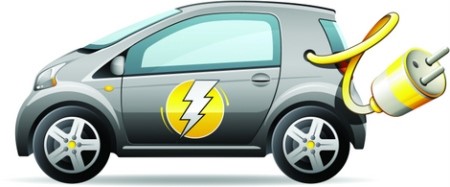
On February 24th, 60 Minutes presented a segment about China’s drive to dominate the electric car industry. There were two things that surprised me in that report, the first was the rapidity of change in China and the second was the means China is using to dominate the electric vehicle (EV) industry. https://www.cbsnews.com/video/electric-cars-chinas-drive-to-dominate-the-industry-60-minutes/
So many images we had seen of China were of a backward, government-controlled society. Cary Huang, in the South China Morning Post in a 2018 article entitled “How ‘Communist’ China has embraced capitalism but remains Leninist at heart“, noted that though the government remains totalitarian, there is a growing middle class that has accepted capitalistic consumerism. In 2015, Tim Worstall wrote an article in Forbes entitled “China’s the most viciously free market economy on the planet right now“. In it Worstall noted, “In China you can change what you’re doing and how you’re doing it at something close to lightning speed compared to Europe or the US. And that’s the sense in which I say that it’s a viciously free market place.”
Concerning the speed of change, 60 Minutes noted that in just 30 years China has gone from uniformed people riding bicycles to modern cities with people driving cars. The government is now promoting electric car ownership to reduce pollution in urban areas. Reduction of pollution is a much-needed change if you have seen the pictures of pollution hanging over China’s cities. The report presented the electric car manufacturer Nio. Their cars are all made to order, in an automated, high-tech factory by an army of robots. The reported noted that with China’s massive manufacturing machine behind it, Nio may be able scale up faster than its foreign competitors.
It is how China is going about that change that is more of a concern. Nio has a research and development center in San Jose, California and is one of nine EV manufacturers that have set up similar centers on the west coast so that they can entice the best engineers and software developers. Nio has hired more than 600 of them from top US firms. Holly Williams, of 60 Minutes made the comment “Some people would see that as the transfer of American technology to a Chinese company.” The response of the Nio executive was “I don’t see it that way.” She went on to explain that they look at it from a perspective of market and pollution. Since China has the biggest market and the biggest problem of pollution, they consider it taking the best talent pool and changing the world for the better.
One could applaud such lofty goals, if they weren’t associated with one of the most totalitarian regimes on the planet. Cary Huang noted that “China is now ranked very low in indices relating to political freedom, such as in freedom of speech, association and assembly. For instance, last year it ranked 141 out of 159 in the human freedom index, compiled by the Washington-based Cato Institute, and 176 out of 180 in the index of press freedom by Reporters Without Borders.“
In the last 30 years, China has advanced by sending students to Western Universities and to work in Western companies. Less scrupulous methods have included stealing technology or trade secrets as noted in a plethora of articles on espionage. See for example, the Reuters article “UPDATE 5-U.S., allies slam China for economic espionage, spies indicted“
It appears that today, the more socially and politically acceptable means for quickly acquiring technology and economic advantage is to set up research centers in countries like the United States to hire the best researchers, engineers and computer programmers. It is a brilliant plan since these people no longer need to go live in China to work for a Chinese company. They don’t need to see the cultural differences or suffer the limitations of freedom. They can think that they are solving a world environmental problem and not that they are giving away knowledge that will further the interests of a foreign state.
Anyone who works in intellectual property knows that China has been patenting at an exponential rate. When American engineers and computer programmers have created patents for their Chinese employer, those patents will surely be used against US competitors in a limited monopoly or required licensing. We need industry specific changes that solve cultural and environmental issues but this report left me with serious questions.
Is the US car industry keeping up with the competition? Isn’t there enough innovation happening in the US to employ the “best and the brightest”? Are Americans being lured to foreign companies by short-term gain? Long-term, how will the American EV industry be affected if Chinese companies receive 20 years of patent protection on new technology? How will US entrepreneurs and innovation centers overcome the challenges of competing with Chinese supported research centers?
